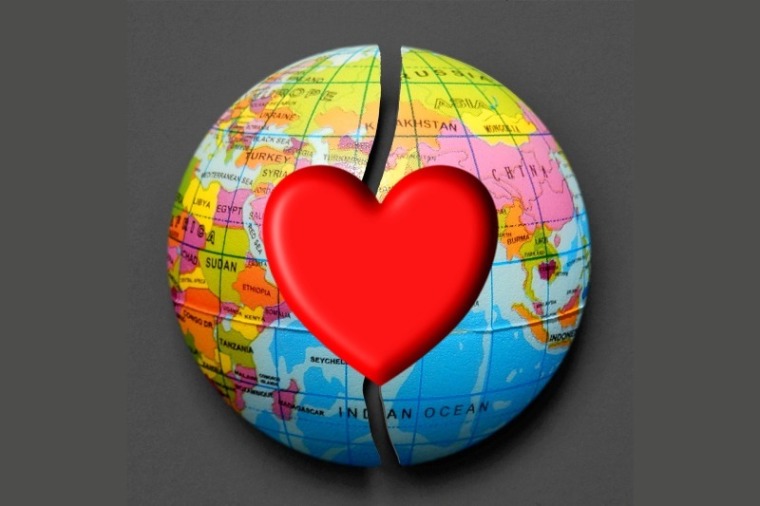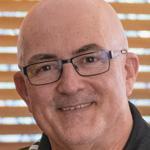
Some days you remember exactly where you were on the same day years before. It’s usually a day when something significant occurred in your life or in the world; an incident embedded in your memory that hasn’t lost its impact.
One such event for me was hearing about the death of Eagles singer/songwriter Glenn Frey. It was a Tuesday, 19 January 2016, when I received the news midway through a team meeting in my office at Auburn, in Sydney.
My phone started ringing and I noticed it was my wife Tara. Thinking it must have been important, I interrupted the meeting to take her call.
‘Glenn Frey has died,’ she said.
‘When?’ I probed.
‘Last night in New York. He was only 67.’
We spoke for a couple of minutes, sharing our shock at this news. Then the meeting resumed, but I must have looked a little preoccupied after that because one of the team asked me if I was okay.
‘Glenn Frey, from the Eagles, has died,’ I said, ‘in New York last night.’
‘Tara rang just to tell you that?’ she asked.
‘Yes, his songs meant a lot to us.’
I remember this day like it was yesterday. Many Eagles’ songs, with Frey at the helm, captured the sentiments of both their own journey and that of people generally. We often think of them and play them on Spotify or from CDs.
September 11
On a much larger scale and with horrific impact, the events of 9/11 are like that for the majority of people no matter where you live. Many of us remember what we were doing when we became aware of America being attacked by terrorists using large passenger planes as weapons – hijacking and crashing them into the World Trade Centre towers in New York and the Pentagon in Washington. Nearly 3,000 people died in the attacks and more than 6,000 were injured.
It too was a Tuesday – 11 September 2001. I was watching late night television in Australia but had fallen asleep. When I woke, my screen was showing live images from New York and I saw a Boeing 767 crash into the south tower. A short time later I watched the disintegration of both towers. There was mayhem in New York that reverberated throughout the world.
Not only was it scary, but unbelievable. My immediate thought was that it was some kind of hoax. But I did a quick flick through the major networks and all were focused on the same unfolding tragedy.
I recall arriving at my own office building about seven hours later to the news of staff phoning in saying they were so disturbed by what happened they couldn’t possibly function at work that day. Some didn’t make it the following day either.
Perhaps the best word to describe the feelings people experienced worldwide that day is shock. And not only that day, but for many days afterwards, even today, 20 years later. It is seriously hard to believe that passenger planes could be used in such a violent and visual way, wreaking havoc upon humankind.
It is shock mixed with grief for the victims and their loved ones but also sorrow for the plight of humanity. The images are indelibly imprinted on our minds, never to be erased from the human record. Even our children’s children’s children will see them in years to come.
When we think of such incidents, along with our shock and grief and sorrow, we can also experience a strong sense of helplessness or futility, like it’s out of our hands and there’s nothing we can personally do to stop such events occurring again. As I write, people are feeling like that about what’s happening in Afghanistan and about the prospect of serious and seemingly irreversible environmental decline.
Do something
But I remind myself that amid gloom and doom, a story always emerges that inspires fresh hope and a way forward. One such story is of United Airlines Flight 93, a 9/11 plane that was hijacked but never reached its target. The story is about a courageous decision taken by a group of passengers on the plane and the action that followed.
One of the passengers, Tom Burnett, called his wife from the plane. ‘I know we’re going to die,’ he said. ‘Some of us are going to do something about it’ (retold by Madeleine K. Albright in her Foreword to Leading From Within). The passengers rushed the hijackers and the plane crashed in countryside in Pennsylvania. There were no survivors but it is thought that hundreds more lives may have been saved.
‘Some of us are going to do something about it.’ As we commemorate the people who lost their lives 20 years ago, can we not also remember and be inspired by the courage of those who acted for the greater good of humanity on that frightful day and in its aftermath? ‘Do something’ is a decision all of us can take right where we are to create a better world. Even a smile, or a phone call, or stopping to encourage someone who is struggling, or addressing our environmental footprint, makes a difference.
Amid the current health pandemic, remembering and embracing a few lines from one of Glenn Frey’s songs, co-written with Don Henley, might be good tonic for us and those around us. The song, titled ‘Hole in the World’, was written in the shadow of 9/11 but not released until 2003:
Oh, they tell me there’s a place over yonder
Cool water running through the burning sand
Until we learn to love one another
We will never reach the promised land
There’s a hole in the world tonight
There’s a cloud of fear and sorrow
There’s a hole in the world tonight
Don’t let there be a hole in the world tomorrow
The key is ‘do something’. There is always something we can do out of love, something within our grasp, to make life better – for ourselves and for others.
It was Jesus Christ who said that the two greatest actions we can take are to ‘love God’ and ‘love your neighbor as yourself’ (Matthew 22:36-40).
Today, what act of love can we give to heal our world? Tomorrow, what can I do for love’s sake?

Peter McGuigan describes himself as a ‘communicator and collaborator for a better world’. He is the writer of a substantive body of opinion and feature articles, and is the author of books on leadership, church polity and spirituality. He delivered award-winning journalism across several editorships and has led teams large and small in both communications and front-line mission work as a Salvation Army officer, including internationally. He has also served as the President of the Australasian Religious Press Association and Chair of The Salvation Army’s Moral and Social Issues Council. He holds a Master of Arts (Writing).